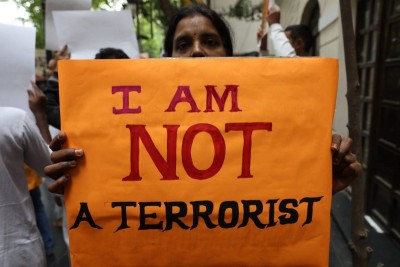 Central African Republic,UN
Central African Republic,UN
Central African Republic President calls for protecting the environment
New York: The current session of the UN General Assembly provides a “solemn opportunity” to consider common challenges that are of serious concern to the future of humanity, President Faustin-Archange Touadéra of the Central African Republic (CAR) told the global gathering on Tuesday
“More than ever, the question of security, peace, the environment, and health are entering a phase which is critical. However, the warning signs are being ignored in favor of economic, geopolitical and geostrategic interests,” he said, speaking through an interpreter.
The General Assembly theme this year is A watershed moment: transformative solutions to interlocking challenges.
Honour your commitments
For Mr. Touadéra, protection of the environment is among the interlocking challenges that countries must overcome.
“It is time for the biggest polluters to honour their commitments, in particular the implementation of the Paris Agreement, as well as international solidarity for climate justice with respect to the most vulnerable populations,” he stated.
Additionally, the COVID-19 pandemic has shown how global public health “is an imperative for all nations, without exception”.
‘Paradigm shift’ in health
The President said the CAR has welcomed “the paradigm shift” underway in the health sector, and the unprecedented momentum of solidarity accompanying it, including access to vaccines for polio, COVID-19, and soon, malaria.
He reported that the country has achieved polio-free status, while 50 per cent of the target population has been vaccinated against COVID-19.
“I commend and encourage the health emergency preparedness initiative implemented by the World Health Organization (WHO),” he continued. “The
Central African Republic is proud to be the instigator of it, and to be the first pilot country which is helping to tangibly improve our ability to manage epidemics.”
Development at risk
However, the national “march towards development” has been slowed by serious security and public health crises, which have been exacerbated by persistent lack of international financial support. This has resulted in disruptions in agriculture, forestry, and mining.
“As a fragile State facing food insecurity and a glaring shortage of material and human resources, the Central African Republic continues to make enormous sacrifices to improve its macroeconomic management and its fiscal governance,” he said.
“With the support of its partners, my country has been able to implement ambitious reforms to strengthen the mobilisation of revenues and optimize public spending.”
The CAR expects that the International Monetary Fund (IMF) will re-establish the extended credit facility, which had been suspended. The move will help boost domestic resources and allow for the digitalization of small tax revenue collection.
Cryptocurrency pioneer
Yet, solutions are still needed to address other challenges, such as developing a resilient and diversified economy, and supporting the education system.
He reported that the CAR was the first country in Africa to adopt Bitcoin as a reference currency and digital payment system, and the first in the world to unanimously adopt a law regulating cryptocurrencies.
“This ambitious and innovative initiative represents an enormous opportunity to reposition the economy to improve prospects and to change the destiny of the people of the Central African Republic at this time when we need to open up to new horizons and solutions that go beyond what is conventional,” he said.
Restoring State authority
Mr. Touadéra added that the CAR has also undertaken several bold reforms and initiatives, with support from international partners, to strengthen the rule of law and restore State authority across the country's territory.
Furthermore, “courageous measures” by the government to combat impunity, along with the implementation of a February 2019 peace agreement and other actions, have helped to reduce tensions and build confidence.
He added that the CAR abolished the death penalty in June of this year. A law on countering the trafficking of persons, and a child protection code, were adopted in August.
Arms embargo
The President also addressed the UN Security Council resolution passed in July that eased the arms embargo on his country. Resolution 2648 also condemned armed group attacks against civilians.
“I also noted with satisfaction, the Council’s position against transnational trafficking networks, which continue to supply armed groups with weapons of all sorts. I welcome the significant progress which allowed for a substantial lifting of the arms embargo imposed on our defense and security forces,” he said.
“I would like to pass on the gratitude of the people of the Central African Republic to all friendly and fraternal countries which firmly support our request for a complete and total lifting of the embargo.”
However, Mr. Touadéra said he deplored “the maneuvering which aims to legitimize armed groups and insidiously to maintain the embargo.”
Support Our Journalism
We cannot do without you.. your contribution supports unbiased journalism
IBNS is not driven by any ism- not wokeism, not racism, not skewed secularism, not hyper right-wing or left liberal ideals, nor by any hardline religious beliefs or hyper nationalism. We want to serve you good old objective news, as they are. We do not judge or preach. We let people decide for themselves. We only try to present factual and well-sourced news.







